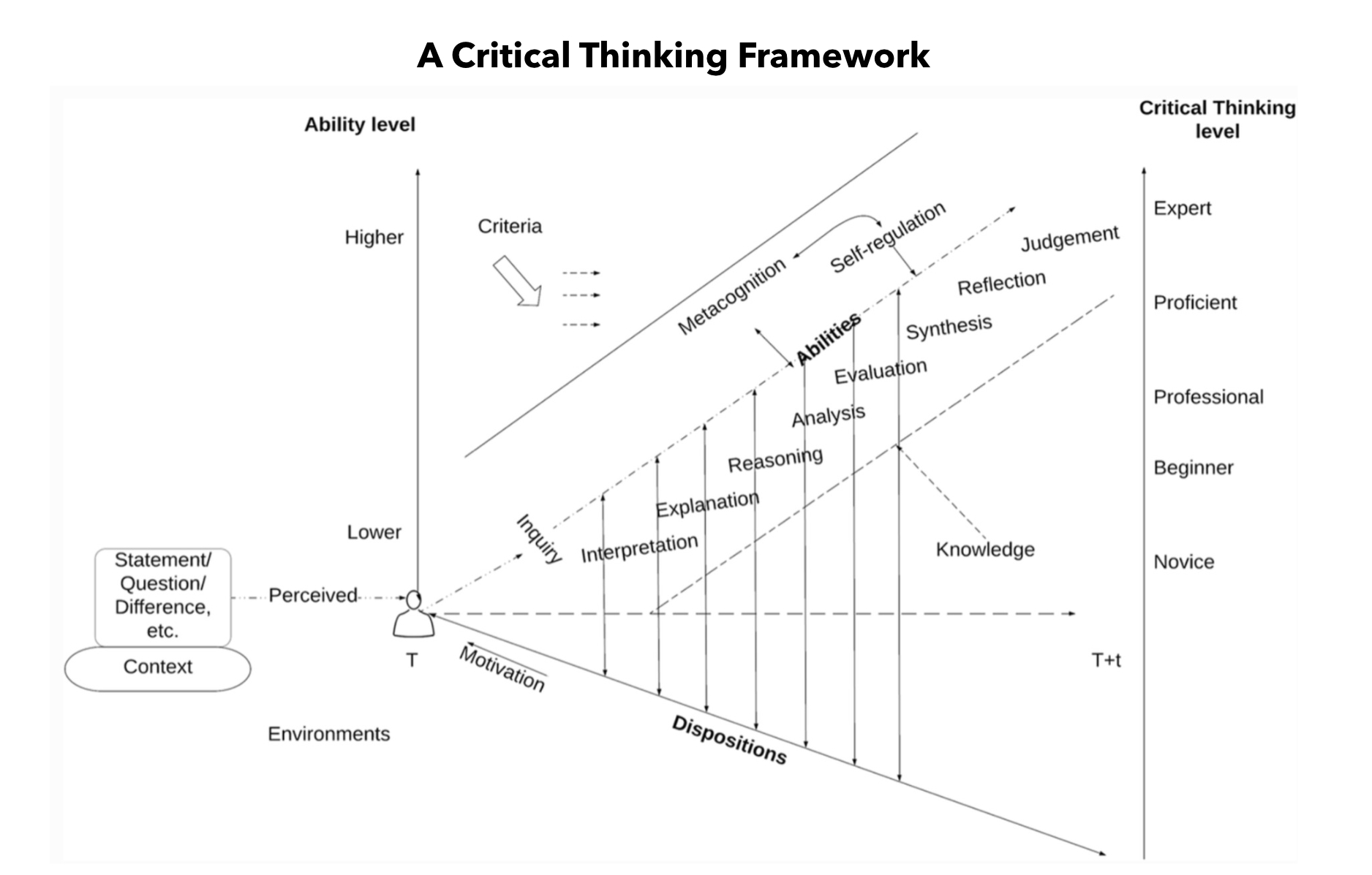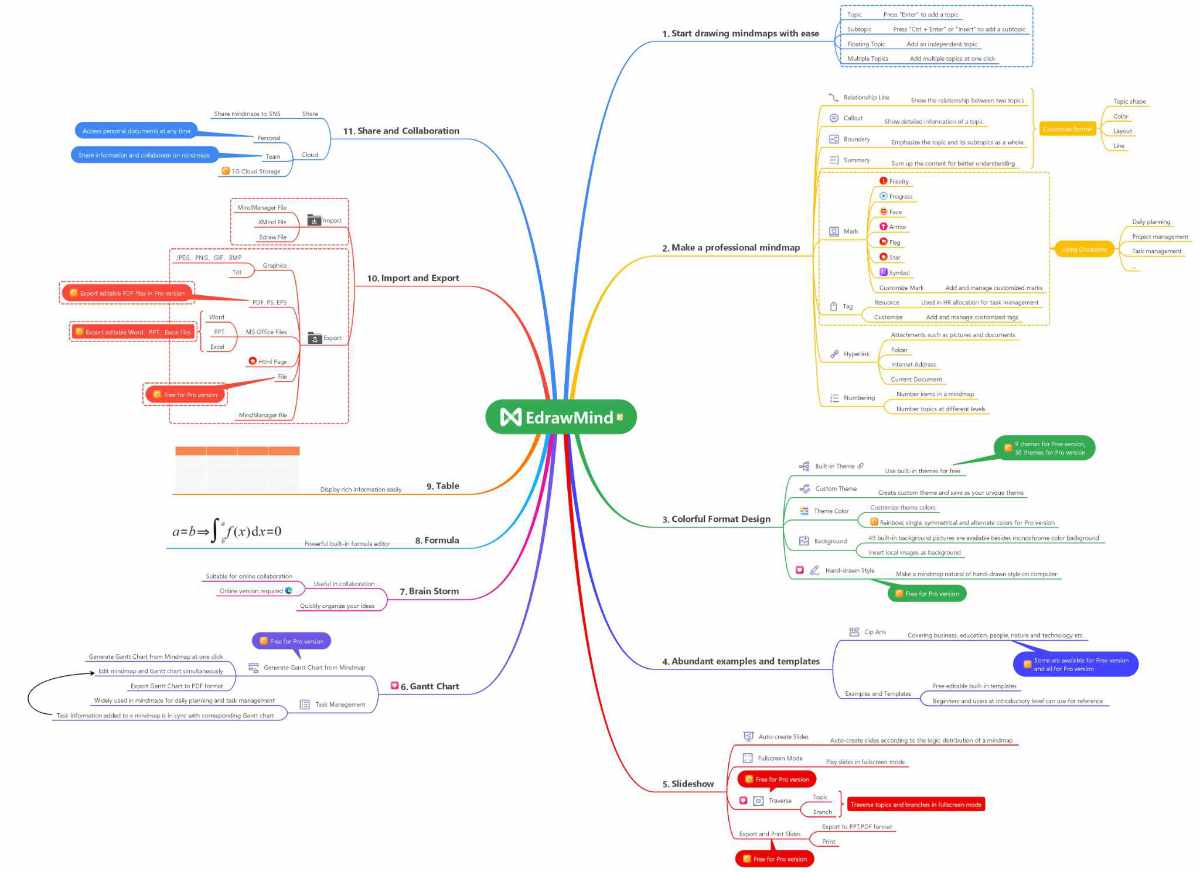In today’s rapidly evolving business landscape, making informed decisions is crucial for success. The 4C skills of the 21st century will be creativity, communication, collaboration, and critical thinking. These skills are needed whether you’re a solopreneur, small business, or large corporation. However, the complexity and uncertainty of the business world often require more than just data analysis or gut instincts. It calls for a cognitive ability known as critical thinking. Critical thinking is the process of objectively analyzing and evaluating information to form well-reasoned judgments or decisions. In this article, we will explore the benefits of critical thinking in making business decisions, defining its essence and significance. Additionally, we will examine real-world examples that highlight the importance of critical thinking and offer three solutions to enhance critical thinking skills.
What is Critical Thinking?
Critical thinking involves the utilization of rational and systematic thought processes to navigate complex problems and situations. It goes beyond merely accepting information at face value; instead, it encourages individuals to question assumptions, evaluate evidence, and consider alternative perspectives before drawing conclusions. Critical thinkers exhibit qualities such as intellectual curiosity, open-mindedness, logical reasoning, and the ability to identify and overcome biases. Although there are many definitions of critical thinking, one that proves useful is the following:
Critical thinking is the art of making clear, reasoned judgements based on interpreting, understanding, applying and synthesising evidence gathered from observation, reading and experimentation.
Burns, T., & Sinfield, S. (2016) Essential Study Skills: The Complete Guide to Success at University (4th ed.) London: SAGE, p94.
Academic Research on Critical Thinking
What does the academic research say about the importance of critical skills in business?
- In Australia, the demand for critical skills as one of the enterprise skills for early career jobs increased 150% between 2012 and 2015.
- According to a 2020 study by the Reboot Foundation found that approximately 94% of survey respondents believe that critical skills are extremely or very important. In a similar study in 2018, 80% of survey respondents felt that critical skills were lacking in today’s youth.
- A study of the performance of Indonesian MSMEs during COVID-19 found that critical thinking improved performance (financial and non-financial) by 31.9%
Benefits of Critical Thinking in Business Decision-Making
Critical thinking is considered one of the 4C skills of the future. It’s a skill sorely needed in business but often absent. There are numerous benefits to critical thinking, including:
- Enhanced Problem-Solving Abilities: Critical thinking equips business professionals with the skills to identify and define problems accurately. By breaking down complex issues into smaller components, critical thinkers can analyze each aspect independently, seeking multiple perspectives and potential solutions. This approach allows for more creative problem-solving and reduces the likelihood of overlooking crucial factors.
- Minimizing Risk: In the business world, risks are inevitable. Critical thinking enables decision-makers to evaluate potential risks associated with different options. By considering the potential consequences of each choice and conducting a thorough risk assessment, critical thinkers can make more informed decisions. This approach helps mitigate risks, anticipate challenges, and devise contingency plans, leading to better outcomes.
- Better Decision Quality: Critical thinking enables business leaders to make decisions based on evidence and sound reasoning rather than impulsive judgments or personal biases. By critically evaluating information, considering different perspectives, and challenging assumptions, decision-makers can ensure that choices are based on logical analysis rather than emotional or subjective factors. This results in higher-quality decisions that align with organizational goals and long-term success.
- Innovation and Adaptability: Critical thinkers are open to new ideas and perspectives. They actively seek innovative solutions, challenging the status quo, and encouraging a culture of continuous improvement. By employing critical thinking, businesses can foster an environment that values creativity and adaptability, allowing them to stay ahead of the competition in dynamic markets.

Examples of Critical Thinking in Business
- Strategic Planning: Developing effective business strategies requires critical thinking. Leaders must analyze market trends, customer needs, and internal capabilities to formulate a well-informed strategy. Critical thinking helps identify potential gaps, challenge assumptions, and assess the feasibility of different strategies, leading to more robust and successful plans.
- Financial Analysis: Critical thinking plays a vital role in financial decision-making. For instance, when evaluating investment opportunities, critical thinkers analyze financial statements, market conditions, and other relevant factors to assess the potential returns and risks. By critically examining data and making informed judgments, businesses can optimize their investment decisions and allocate resources effectively.
- Problem-Solving in Teams: Critical thinking is essential in collaborative problem-solving scenarios. When teams face complex challenges, critical thinkers foster an environment where diverse perspectives are encouraged and each team member’s input is valued. This collaborative critical thinking process helps identify innovative solutions, resolve conflicts, and enhance overall team effectiveness.
- Customer Experience: Critical thinking is pivotal in understanding and meeting customer needs. By critically analyzing customer feedback, businesses can identify patterns, spot emerging trends, and make informed adjustments to their products or services. Critical thinkers actively seek feedback, conduct surveys, and evaluate customer data to ensure that their offerings remain relevant and competitive in the market.

3 Proven Solutions to Enhance Critical Thinking
It’s important to keep in mind that critical thinking skills are developed over time. Several technological solutions can support the development of critical thinking skills. Some of these solutions include:
Udacity
Udacity, an online learning platform, is a valuable resource for developing critical thinking skills in various educational contexts. The company is a leader in the MOOC (massive open online course) market and one of the top 3 online learning providers.
How Udacity Aids in Fostering Critical Thinking:
a) Interactive Learning: Udacity’s courses feature interactive exercises, real-world projects, and quizzes that prompt learners to think critically, analyze information, and solve problems. Engaging activities encourage the application of critical thinking principles to practical scenarios.
b) Real-World Relevance: With content created by industry experts, Udacity emphasizes the application of critical thinking to real-world challenges. Learners gain insights into how critical thinking can be utilized in professional settings, enabling them to make informed decisions and solve complex problems effectively.
c) Collaborative Opportunities: Udacity facilitates collaborative learning through discussion forums and project-based assignments. Learners engage in constructive debates, exchange ideas, and gain diverse perspectives, promoting critical thinking by challenging assumptions and considering alternative viewpoints.
d) Self-Paced Learning: Udacity’s flexible learning environment allows learners to progress at their own pace. This freedom enables individuals to allocate ample time for reflection, analysis, and deep thinking, enhancing their critical thinking abilities.
EdrawMind
EdrawMind is a collaborative online platform that promotes critical thinking by providing a digital space for brainstorming, organizing ideas, and solving problems. It offers a visual and interactive interface where teams can collaborate in real-time, allowing for the free flow of ideas and facilitating critical discussions. EdrawMind provides a flexible canvas where users can create mind maps, diagrams, and virtual whiteboards to structure and connect their thoughts.
EdrawMind MindMapping Tool
How EdrawMind Aids Critical Thinking
a) Idea Generation: EdrawMind encourages participants to contribute their thoughts and ideas in an open and visual manner. This stimulates creative thinking and allows individuals to explore different possibilities, fostering critical thinking skills.
b) Collaboration and Perspective Sharing: The platform enables teams to collaborate synchronously or asynchronously, providing an environment where multiple perspectives can be shared and evaluated. By considering diverse viewpoints, critical thinkers can challenge assumptions, analyze information from different angles, and make more informed decisions.
c) Structured Organization: EdrawMind’s visual tools help users organize complex information, facilitating the analysis and synthesis of ideas. Critical thinkers can break down problems into smaller components, identify relationships between ideas, and detect patterns or gaps that may require further investigation.
Teachable
Teachable is an online learning platform that allows individuals or organizations to create and deliver courses on various subjects. While not explicitly designed for critical thinking, Teachable can be utilized effectively to enhance critical thinking skills within educational contexts.
How Teachable Aids Critical Thinking
a) Curriculum Design: Instructors using Teachable can structure their courses to promote critical thinking by incorporating activities and assessments that require analysis, evaluation, and problem-solving. These activities may include case studies, critical reading exercises, or interactive discussions, all of which encourage students to think critically about the subject matter.
b) Engaging Course Materials: Teachable allows instructors to present content using multimedia, such as videos, interactive quizzes, and real-world examples. By incorporating engaging and thought-provoking materials, instructors can stimulate critical thinking and prompt students to reflect on the information presented.
c) Discussion Forums: Teachable provides discussion forums where students can interact with peers and instructors. These forums offer opportunities for critical thinking through debates, collaborative problem-solving, and the exchange of diverse perspectives.
Competing in the Knowlege Economy
Critical thinking is an indispensable skill for developing a growth mindset and making effective business decisions in the new knowledge economy. By embracing critical thinking, businesses can navigate the complexities of the modern business world, minimize risks, and seize opportunities. The benefits of critical thinking extend beyond individual decision-making to influence team dynamics, strategic planning, financial analysis, and customer satisfaction. Encouraging a culture of critical thinking empowers businesses to adapt, innovate, and thrive in an ever-changing marketplace, fostering long-term success. Therefore, developing and honing critical thinking skills should be a priority for professionals at all levels within organizations.
To learn more about our solutions or for more information, please feel free to get in touch.
Disclosure: At ClearSky 2100, our portfolio partly consists of affiliate partnerships. We may earn a small commission from buying links on our site at no cost to you.







